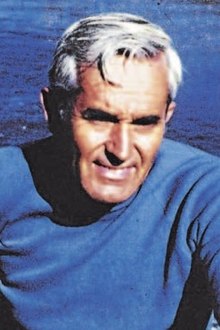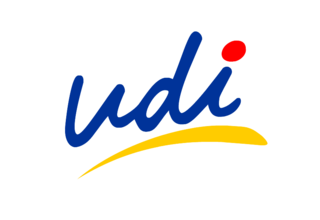
The Independent Democratic Union is a conservative and right-wing political party in Chile, founded in 1983. Its founder was the lawyer, politician and law professor Jaime Guzmán, a civilian allied with Augusto Pinochet. Guzmán was a senator from 1990 until his murder by communist guerrillas on April 1, 1991.

The 1973 Chilean coup d'état was a military overthrow of the democratic socialist president of Chile Salvador Allende and his Popular Unity coalition government. Allende, who has been described as the first Marxist to be democratically elected president in a Latin American liberal democracy, faced significant social unrest, political tension with the opposition-controlled National Congress of Chile. On 11 September 1973, a group of military officers, led by General Augusto Pinochet, seized power in a coup, ending civilian rule.

An authoritarian military dictatorship ruled Chile for seventeen years, between 11 September 1973 and 11 March 1990. The dictatorship was established after the democratically elected socialist government of Salvador Allende was overthrown in a coup d'état backed by the United States on 11 September 1973. During this time, the country was ruled by a military junta headed by General Augusto Pinochet. The military used the breakdown of democracy and the economic crisis that took place during Allende's presidency to justify its seizure of power. The dictatorship presented its mission as a "national reconstruction". The coup was the result of multiple forces, including pressure from conservative groups, certain political parties, union strikes and other domestic unrest, as well as international factors.

José Toribio Merino Castro was an admiral of the Chilean Navy who was one of the principal leaders of the 1973 Chilean coup d'état, along with General Augusto Pinochet of the Army, General Gustavo Leigh of the Air Force, and General César Mendoza of the Carabineros. Together they established a military dictatorship that ruled Chile from 1973 until 1990, during which more than 3,197 Chilean citizens were executed or simply "disappeared", according to the reports of official bi-partisan commissions established by the President of Chile, Patricio Alwyn, in the 1990s. In addition, a further 28,459 Chileans were victims of torture, which included approximately 3,400 cases of sexual abuse of women.
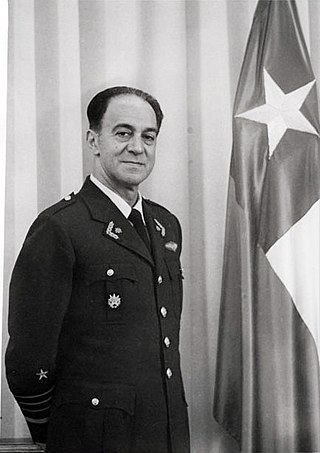
Air General Gustavo Leigh Guzmán was a Chilean general, who represented the Air Force in the 1973 Chilean coup d'état and, for a time, in the ruling junta that followed. Leigh was forced out of the military government in 1978.
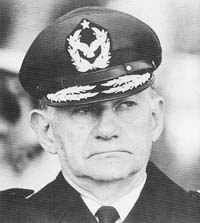
Fernando Matthei Aubel was a Chilean Air Force general who was part of the military junta that ruled Chile from 1973 to 1990, replacing the dismissed Gustavo Leigh as commander-in-chief of the Chilean Air Force on 24 July 1978. He was part of the Junta from 1978 to 1990, and served as minister of health from 1976 to 1978, retiring from the Air Force in July 1991.

National Renewal is a liberal conservative political party in Chile. It is a member of Chile Vamos, a centre-right to right-wing coalition. Sebastián Piñera, the former President of Chile, was a member of the party.

José Tohá González was a Chilean journalist, lawyer, and politician of the Socialist Party (PS).

The Government Junta of Chile was the military junta established to rule Chile during the military dictatorship that followed the overthrow of President Salvador Allende in the 1973 Chilean coup d'état. The Government Junta was the executive and legislative branch of government until December 17, 1974, when Augusto Pinochet was formally declared President of Chile in late 1974. After that date, it functioned strictly as a legislative body until the return to democracy in 1990.

The military regime in Chile led by General Augusto Pinochet ended on 11 March 1990 and was replaced by a democratically elected government. The transition period lasted roughly two years, although some aspects of the process lasted significantly longer. Unlike most democratic transitions, led by either the elite or the people, Chile's democratic transition process is known as an intermediate transition – a transition involving both the regime and the civil society. Throughout the transition, though the regime increased repressive violence, it simultaneously supported liberalization – progressively strengthening democratic institutions and gradually weakening those of the military.
Events from the year 2007 in Chile
French Chileans are Chilean citizens of full or partial French ancestry. Between 1840 and 1940, 20,000 to 25,000 French people immigrated to Chile. The country received the fourth largest number of French immigrants to South America after Argentina (239,000), Brazil (150,341) and Uruguay.
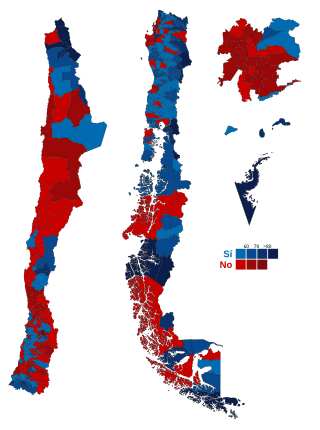
A referendum on whether Augusto Pinochet, the head of a military dictatorship, should become president for eight years under resumed civilian rule was held in Chile on 5 October 1988. The "No" side won with 56% of the vote, marking the end of Pinochet's 16+1⁄2-year rule. Democratic elections were held in 1989, leading to the establishment of a new government in 1990.

Augusto José Ramón Pinochet Ugarte was a Chilean military officer who was the dictator of Chile from 1973 to 1990. From 1973 to 1981, he was the leader of the military junta, which in 1974 declared him President of the Republic and thus the dictator of Chile; in 1980, a referendum approved a new constitution confirming him in the office, after which he served as de jure president from 1981 to 1990. His time in office remains the longest of any Chilean ruler.

Human rights abuses in Chile under Augusto Pinochet were the crimes against humanity, persecution of opponents, political repression, and state terrorism committed by the Chilean Armed Forces, members of Carabineros de Chile and civil repressive agents members of a secret police, during the military dictatorship of Chile under General Augusto Pinochet from 1973 to 1990.
Events in the year 1974 in Chile.
The following lists events that happened during 1978 in Chile.

Ángela Margarita Jeria Gómez was a Chilean archaeologist. Mother of the former President of Chile Michelle Bachelet, she was the wife of the Chilean Air Force Brigadier General Alberto Bachelet, who died after being tortured during the dictatorship of Augusto Pinochet. Jeria served informally in the role of first lady during the first Bachelet government, accompanying her daughter to several official functions. Her official protocolary role was "Director of the Sociocultural Area of the Presidency".

Chile–Norway relations are foreign relations between the Republic of Chile and the Kingdom of Norway. Both nations are members of the OECD and the United Nations.

Claudia Barattini is a Chilean teacher and political scientist. She was a minister during the second government of Michelle Bachelet.
